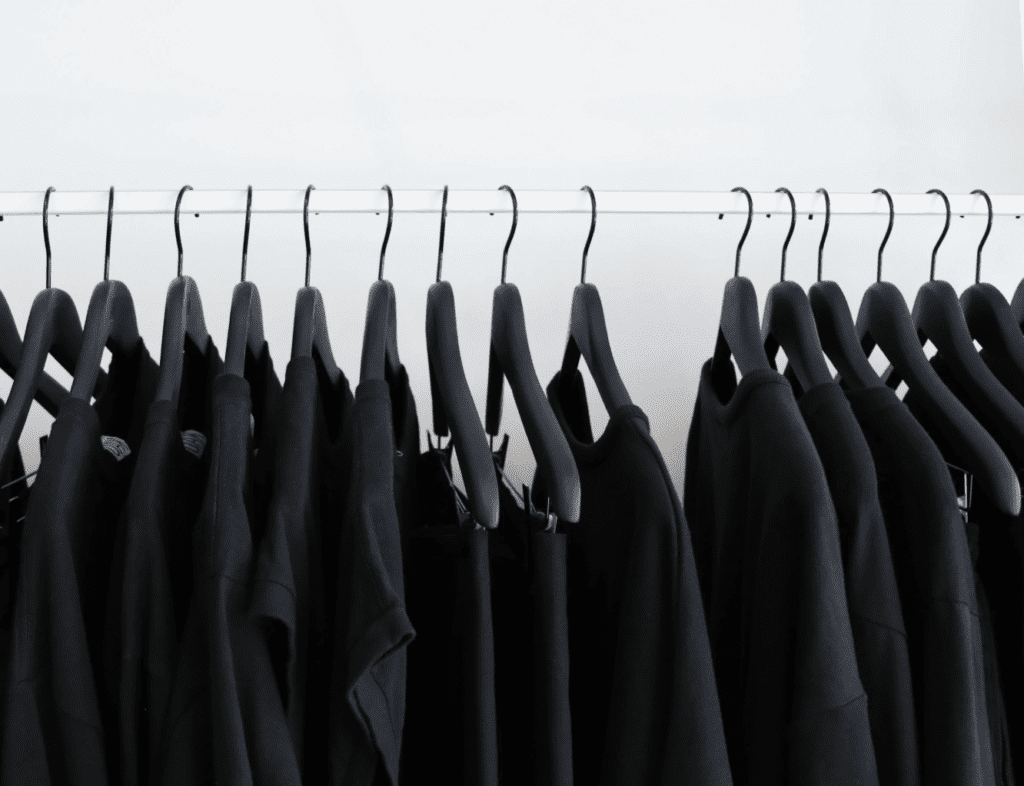Vestiaire Collective announced early this month that thanks to a new funding round in which it raised $216 million, it has not only achieved unicorn status – in other words, it is now a privately-held company with a $1 billion-plus valuation – but it has a big-name new investor by way of Gucci-owner Kering, which led the recently-announced round alongside American investment firm Tiger Global Management. In its March 1 release announcing the funding, the swiftly-growing Vestiaire revealed that it will use the funding “to scale up its technology and data innovation roadmap, accelerating its circularity vision along with initiating strategic change in the fashion industry.”
At the heart of the French resale company’s expansion plan is a “sustainability roadmap,” which consists of four “main innovative pillars.” One of those pillars? “Being an exemplary company,” in connection with which Vestiaire says that it has launched “a number of strategic initiatives,” such as filing an application to become a B Corp certified business. Techcrunch noted in its coverage of the financing that “Vestiaire Collective aims to be carbon neutral by 2026 and get the B Corp certification.”
In setting its sights on B Corp certification, Vestiaire could join the likes of Allbirds, Patagonia, Toms, Bombas, skincare/beauty brand Beautycounter, Eileen Fisher, and the Gap-owned athleisure brand Athleta, along with some 3,000 other companies that currently operate as Certified B Corporations, meaning that they have, among other things, met the threshold of the “B Impact Assessment,” the test that B Corp-certifying party B Lab created in order to evaluate businesses in five key “impact” areas: governance, workers, community, environment, and customers. (Among the questions on the B Lab test: What portion of your management is evaluated in writing on their performance with regard to corporate social and environmental targets; what percentage of management is from underrepresented populations; and what percentage of energy used is from renewable on-site energy production for corporate facilities?)
Since getting its start under the watch of B Labs in 2006, the B Corp model has been subject to pushback, particularly in recent years, with WWD’s Sindhu Sundar, for instance, writing in 2019 that while the system is “meant to encourage transparency and accountability in corporate decision-making,” critics have maintained that it “lacks teeth,” due, at least in part, to the fact that “there is no formal government oversight of B Lab’s program, and the reporting requirements for legal benefit corporations vary depending on where they are incorporated.” Nonetheless, the certification remains “the gold standard” when it comes to “outside verification,” Vogue Business’s Christina Binkley wrote this week in furtherance of an examination of how ethics has become “mainstream” in the fashion industry.
While at least one big-name company has distanced itself after being enmeshed in the B. Corp ecosystem (Warby Parker did not renew its certification in 2018 reportedly due to the then-newly-imposed requirement that companies convert their legal structure to that of a “benefit corporation,” a type of for-profit corporate entity), B Corp status has “helped trendy startups” – no matter the industry – “signal to customers their commitment to the public good in addition to boosting shareholder value,” according to a client note from Carpenter Wellington. “Ever since Patagonia became the first company in California to sign up for B Corp certification in 2012,” the firm notes that “the so-called ‘stakeholder capitalism’ movement has extended across a wide array of industries and jurisdictions,” bringing with it a “legal framework to enable mission-driven companies like Patagonia to stay mission-driven through succession, capital raises, and even changes in ownership.”
Vestiaire is one of the latest – and certainly, one of the buzziest – names in fashion to seemingly adopt this rationale.
Becoming a B Corp
The reality behind becoming a B Corp is that it “is not an easy process,” as publicly-traded insurance company Lemonade (a certified B Corp) put it. The process takes months to complete, and requires companies to present no shortage of “supporting documentation to validate select assessment responses,” according to B Labs. This certainly comes at a cost. And assuming that a company is given B Corp status, the work does not stop there. As Vogue Business previously noted, B Corp “membership is only maintained if [companies] invest in continuous improvements,” which requires consistent time and resources.
Given the demanding road to becoming a B Corp and holding on to that status thereafter, the question arises about why companies go this route, especially since such B Corp certification is not a requirement to achieving recognition on environmental, social, and governance (“ESG”) issues from consumers and/or investors. As Wilkie lawyers Robert Rachofsky and Claire James noted in an article for Columbia Law School’s Corporations and Capital Markets site, “A company can be a ‘responsible and sustainable’ corporate citizen and support important ESG-related causes, thereby appealing to the same demographic [of consumers and investors] … without formally organizing as a public benefit corporation or being certified as a B-Corp.”
Companies’ reasons for opting for B Corp status, and their expectations about what it will bring vary. For Vestiaire, for instance, the push towards B Corp status appears to be part of a larger aim: “becoming an exemplary company, and driving change for a more sustainable fashion industry.” As the company’s co-founder Fanny Moizant recently asserted, as reported by Vogue, the larger goals for the company is to “help Vestiaire customers reduce their own impact by connecting them with local sellers; and, more broadly, ‘trigger systemic change in the industry.’” B Corp status may, then, just be an added bonus … albeit, a bonus with some marketing might behind it.
After all, there is an undeniable – and particularly relevant – marketing element at play for all B Corps since the “B” logo “actually means something” (again, in Lemonade’s words), and thus, the badge helps brands to stand out in the crowded market, enabling them to build goodwill and attract consumers, and thereby, gain value.
As for why designations such as B Corp actually matter, sustainable fashion app Renoon’s Jennifer Dobrowolski asserts that “by 2021, you may have thought that sweatshop labor in fashion would be a thing of the past. But sadly, the same human rights abuses that led to the Rana Plaza collapse in 2013 continue to plague the modern fashion industry.” Amassing and maintaining a B Corp certification can help companies to both ensure that their operations are up to par and to alert increasingly-skeptical consumers of the fact.
In addressing its own path towards B Corp status, Richard Stammer, the CEO a Waitsfield, Vermont-based dairy agricultural marketing cooperative Cabot, has asserted that there is, of course, a consumer element at play. “While consumers are clearly rewarding values-based businesses, there is a very big catch: they are not accepting brands’ social and environmental claims at face value,” he wrote in an article for Harvard Business Review. “This means that companies must take steps to convince consumers that they ‘authentically demonstrate commitment to social and environmental impact build consumer trust and business value,” he says. Achieving B Corp status helps with this.
Beyond that, though, he noted that “certification not only addressed the questions posed by our retail partners but also delivered value beyond our expectations” in that amassing and maintaining the certification “encouraged more ‘whole-systems thinking’ around our social and environmental practices, which led us to develop even more robust customer and consumer programs, cut operating costs, and strengthen our brand reputation as a sustainability-minded company.”
In other words, the company has seemingly reaped benefits that go beyond the immediate ones that come with displaying the “B” logo, and has been incentivized to prioritize the very social and environmental considerations behind it in order to maintain consumer and investor trust and to keep its status as a certified B Corp.











